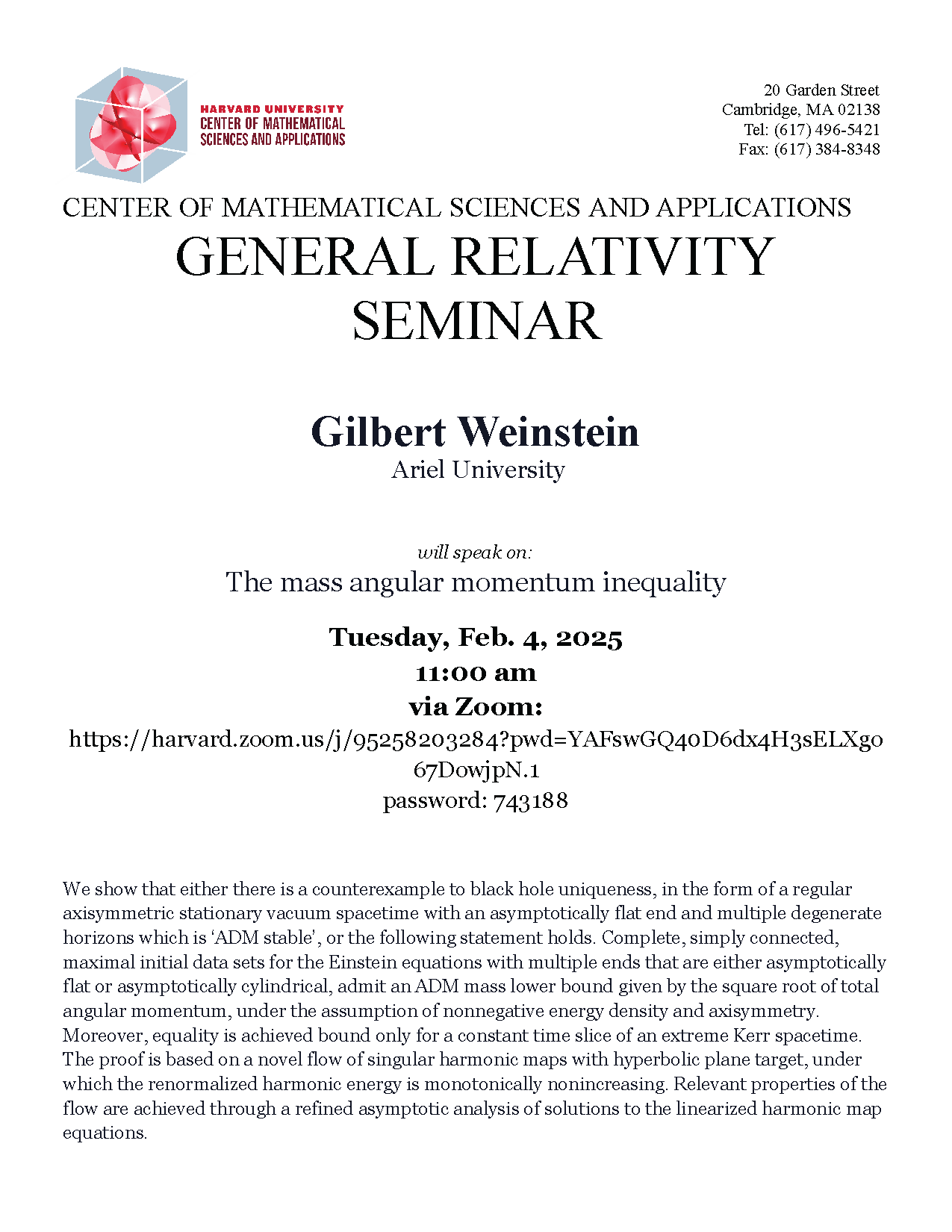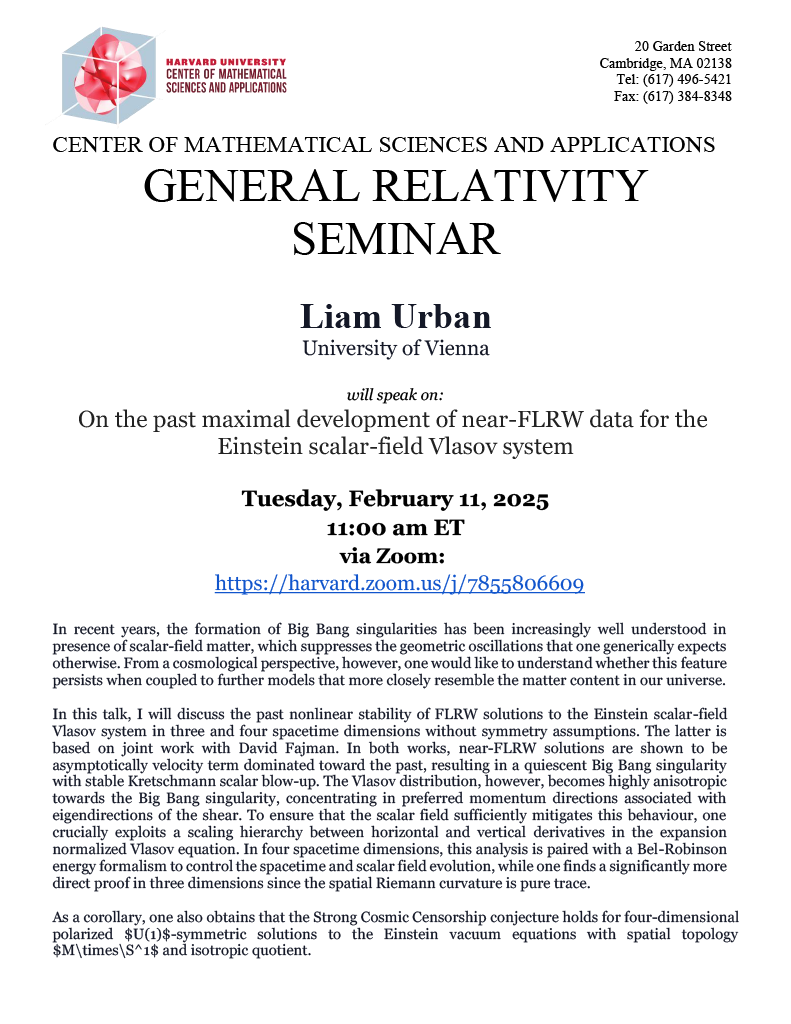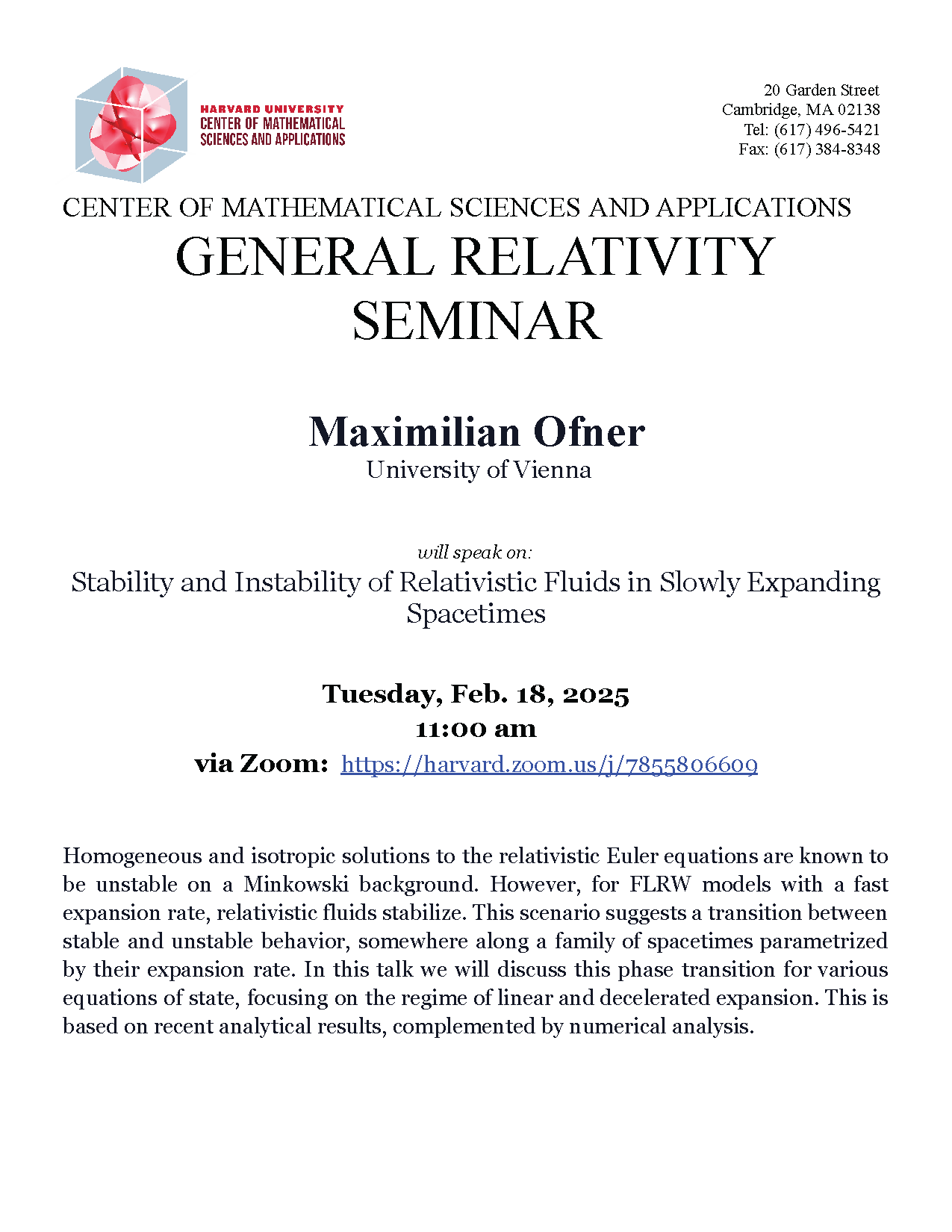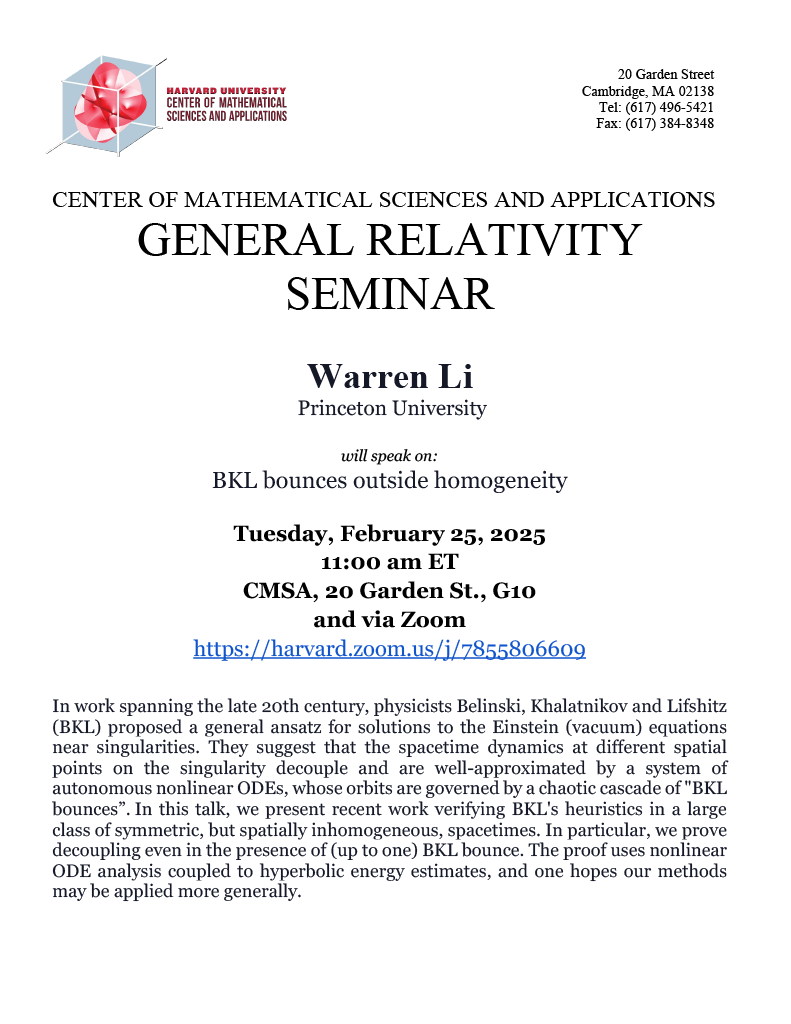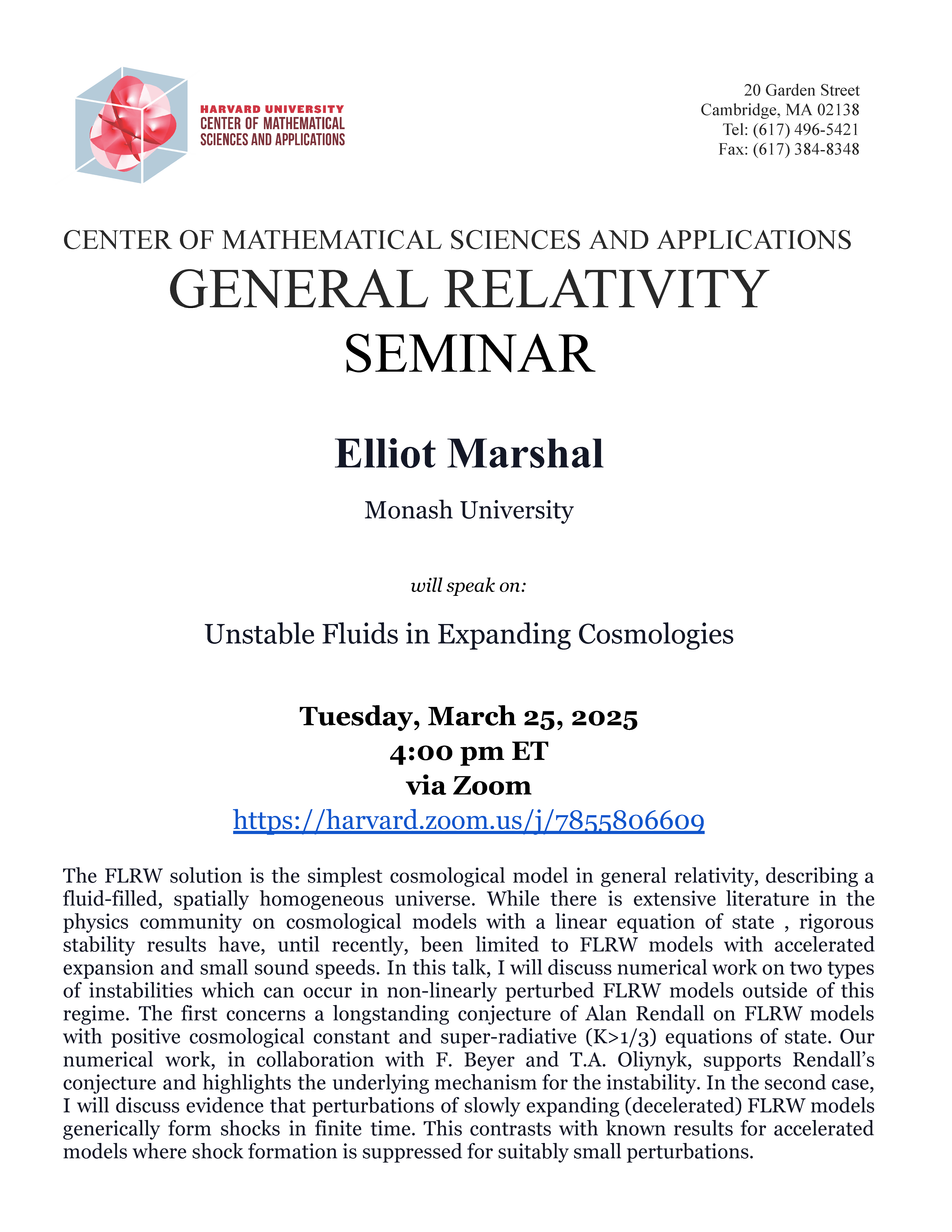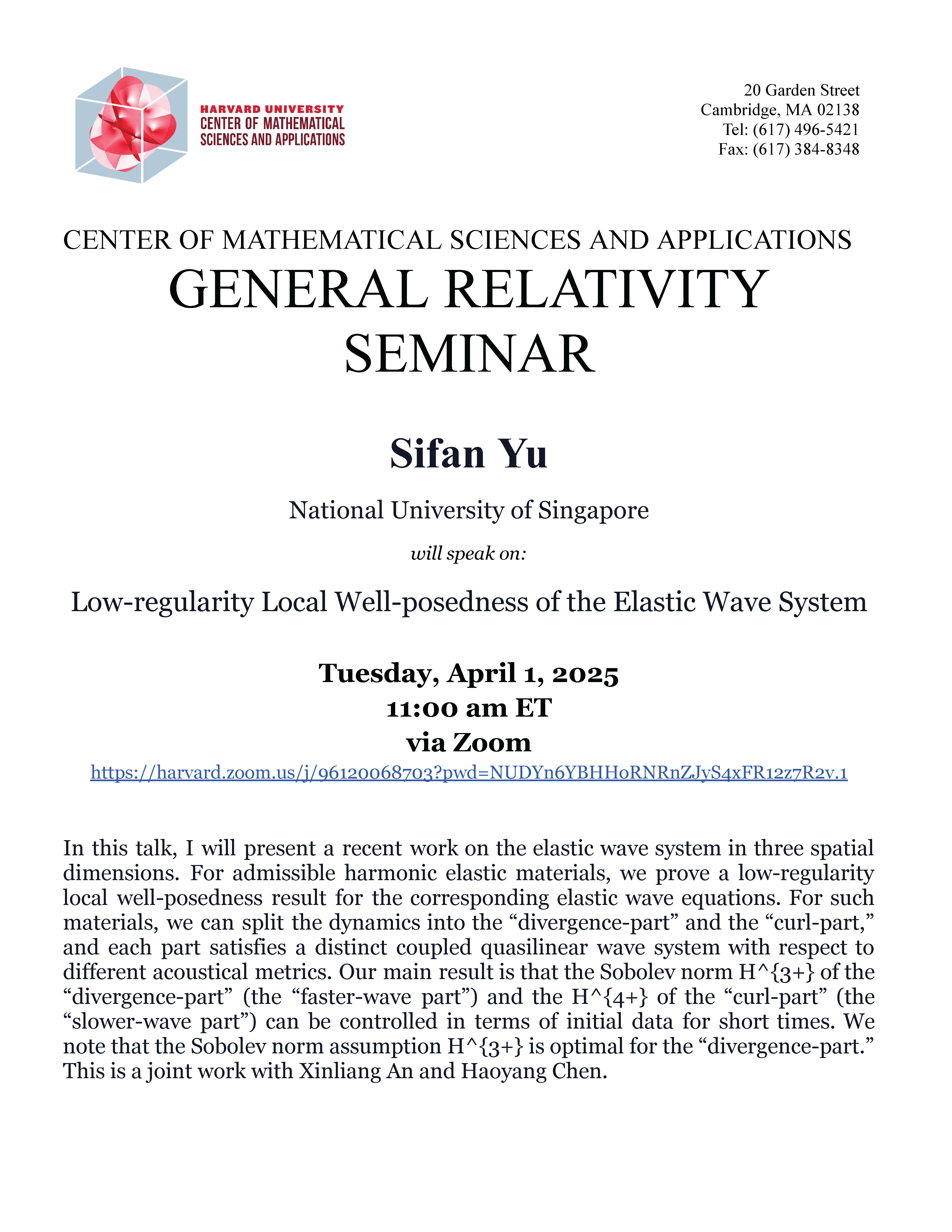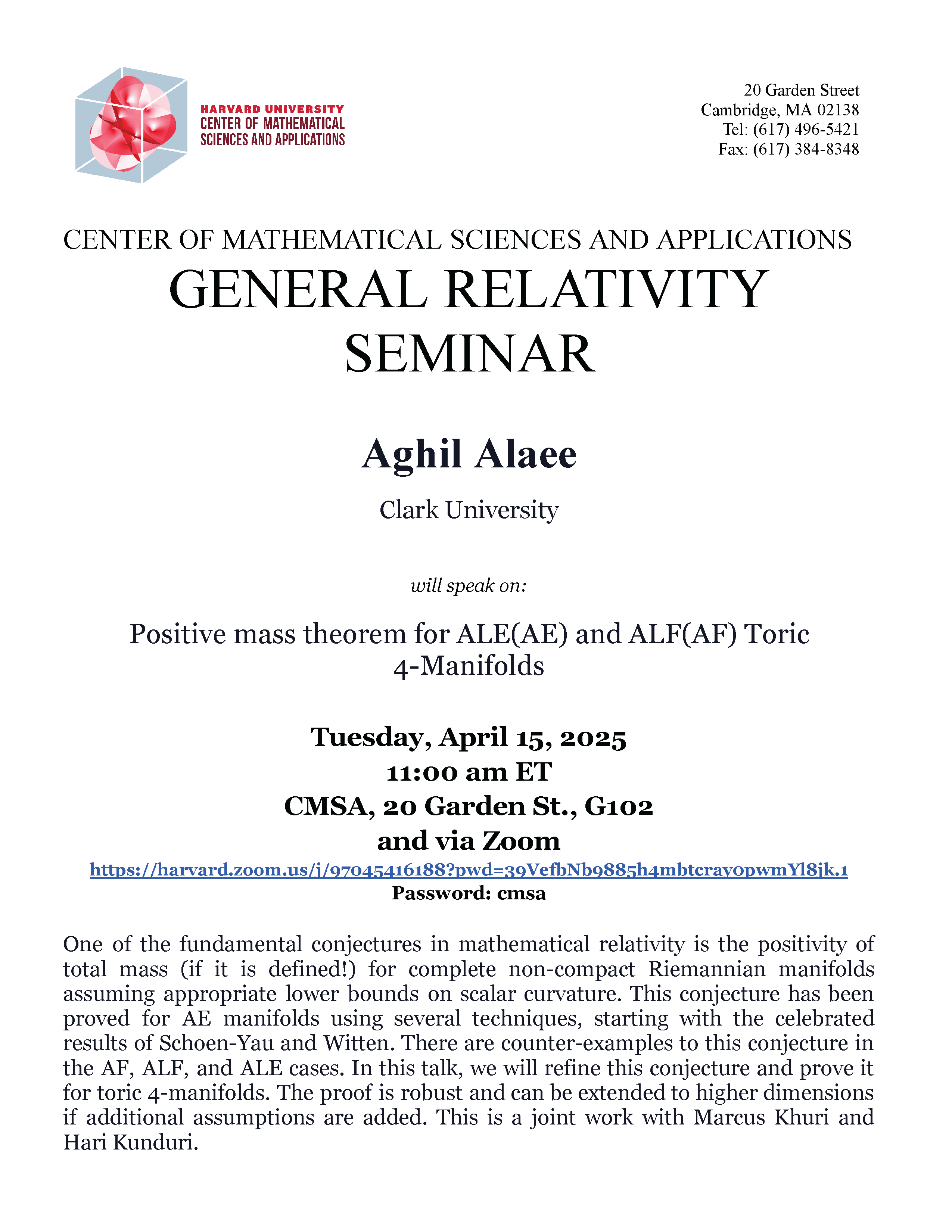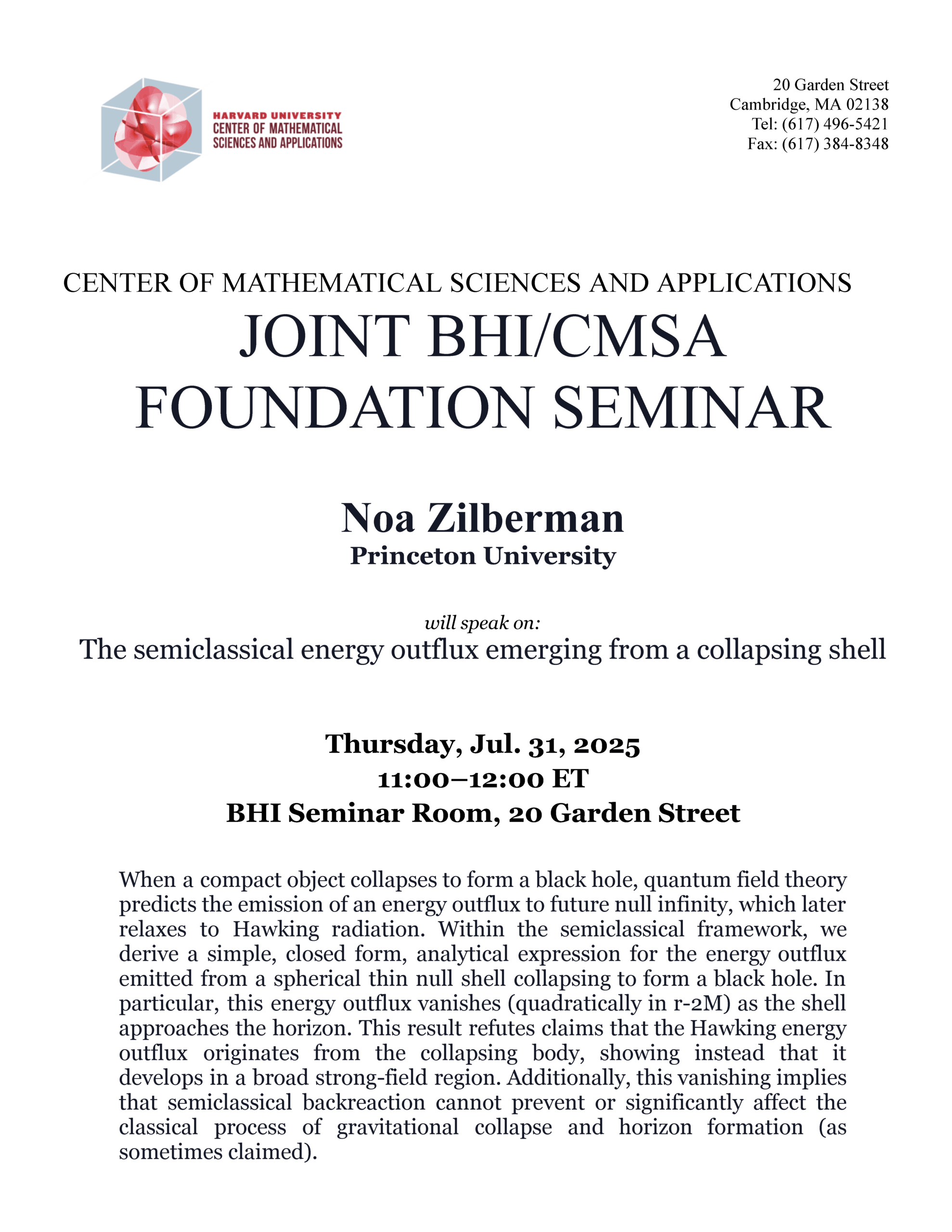
Joint BHI/CMSA Foundation Seminar: Quantum Criticality in Black Hole Dynamics
Black Hole Initiative, 20 Garden Street, Cambridge MA CMSA, 20 Garden Street, Cambridge, MA, United StatesJoint BHI/CMSA Foundation Seminar Location: BHI Seminar Room Speaker: Uri Kol, Harvard CMSA Title: Quantum Criticality in Black Hole Dynamics Abstract: Black hole perturbation theory captures a few important effects in the dynamics of binary mergers, such as tidal deformations and the decay of ringdown modes, as well as the physics of the photon ring. […]

